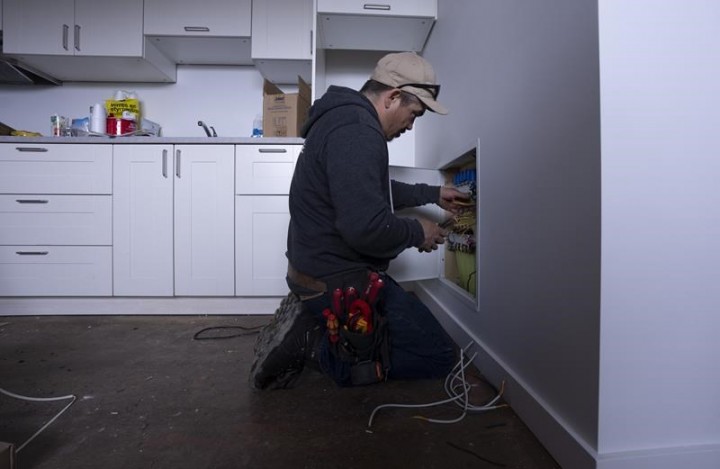KUUJJUAQ, Que. — Daniel Gabois would usually be out hunting this time of year.
Flocks of Canada geese have started to appear overhead in their V-formations, returning to nesting grounds in the northern Quebec region of Nunavik. That’s the signal for him and many others in his hometown of Kuujjuaq to head out on the land.
But the electrician and entrepreneur is working 10- to 12-hour days, trying to finish more work than he can keep up with as companies and governments scramble to fill a critical housing gap.
“The North is growing too fast,” he said.
Statistics Canada population projections from 2020 show that Nunavut and the Northwest Territories will have the youngest median populations in the country over the next four decades, well below the Canadian average.
A study of Nunavik’s population between 2006 and 2016 shows it grew at a much higher rate, 22 per cent, than the rest of Quebec at eight per cent. At the time, a third of the people in Nunavik were under the age of 15.
Gadbois comes from a family of tradespeople. One brother owns a plumbing and heating company. The other is a carpenter.
They’re local companies working to build housing in the North. But even the solutions are being hindered, he said, by housing issues.
“It all comes back down to lodging,” Gadbois said.
To fulfil his contracts, he’s renting eight workers from a company near Val-d’Or, Que., paying for their flights, food, lodging and salaries.
“You’re looking at all your profits going into renting a place for someone who’s going to be flying in and out.”
Gadbois and his family lived in southern Quebec while he got his certification. He said he missed home, but wanted his daughter to get the best education possible. They stayed until “she started losing the language.”
The family sold their house and applied for housing in Nunavik, where they learned there was a three-year wait-list.
Gadbois built his home in Kuujjuaq, but knows that isn’t something everyone can do. The short construction season and long distance from suppliers add to the challenge.
“It’s always money, right?” Gadbois said.
The recent federal budget set aside $150 million over two years to support affordable housing and related infrastructure in the North.
In a meeting of the House of Commons status of women committee Friday, NDP MP Niki Ashton said the budget “is nowhere near what it needs to be to address the housing crisis in terms of Indigenous communities.”
In a response, Indigenous Services Minister Marc Miller said the housing commitments “will be game-changers.”
“But are they enough? Absolutely not,” he said. “I don’t think anyone credible could actually stand up and say that.”
Inuit Tapiriit Kanatami president Natan Obed called the budget a “significant step in the right direction” at the time it was released, adding that “the Inuit housing crisis is both uniquely acute and long-standing.”
Locals want to be part of the solution.
Gadbois employs three other men from Nunavik at Ikumak Services, and he’s working to encourage more young people to join the trades.
“You see a lot of the young ones have interest in getting out of their hometown to … get out of their overcrowded homes, because that’s really the problem, right? You can end up with seven, eight people in a two-bedroom home.”
He’d like to see a comprehensive trade school in Nunavik to train the next generation. Most Nunavik residents do what Gadbois did: head to what he calls the south, to schools in Quebec and Ontario.
“For someone who’s never really been down South, who’s been up North all their lives, it’s kind of a culture shock,” he said.
Still, he said he sees change occurring.
“Nothing happens overnight, right?”
For now, Gadbois is waking up before sunrise to try and get some goose hunting in before the work day starts.
This report by The Canadian Press was first published May 24, 2022.
Sarah Ritchie, The Canadian Press
